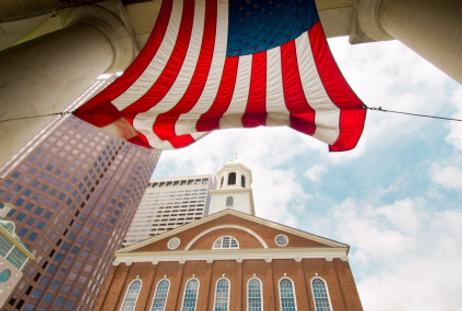Quaker schools have been quietly thriving throughout the country for a number of years, and for parents who find that traditional public and private schools do not provide the environment they want for their children, Quaker schools are an ideal choice. From six Quaker schools in California to eight in New York, and even the one in DC where President Obama's daughters attend, these campuses challenge traditional education's standard teaching methods.
While the overtly Quaker schools today are all private, there may be a future movement wherein charter schools become quietly inspired by Quaker philosophies - minus the religious components.
What is Quakerism?
A Quaker education is one that focuses on the development of the individual student, and the school environment is meant to cultivate "a strong sense of social understanding, skills to deal with adversity, tolerance and respect for others, and a strong sense of self-worth so that [students] have the power needed to succeed," according to a graduate of a Quaker school quoted by .
A Quaker education focuses on the core values of Quakerism, which are called testimonies:
- Peace
- Equality
- Simplicity
- Integrity
- Community
- Service
The first Quaker school in America, the , was originally opened in 1689 as a public school, opening its doors to all students of all socioeconomic means. In fact, Penn Charter was one of the first schools to offer financial aid for its students and teach females and students of all racial backgrounds.
This video explains Quakerism.
Quakers and Education: A Natural Fit
The website for , a private, independent Quaker K-12 school, notes that “the Religious Society of Friends, or Quakers, has a long history of involvement in education. In addition to the establishment of their own schools, Quakers were instrumental in the development of public schools and took the lead in the education of girls, freed slaves, and Native Americans.”
The first Quaker school in America was established by William Penn as the Friends Public School in Philadelphia. While Quaker schools today are private entities, some charter schools have been inspired by the non-religious aspects of Quaker educational philosophies.
For example, the , which is a public charter school in Visalia, California, that supports homeschooled students, does not espouse the religious components of Quakerism, but "its structural support for nurturing families and the individuality of children, against a tide of production-oriented and testing-driven education, align it with Quaker values," as described by the .
, which is a charter school for homeschoolers in Ohio, also shares non-religious Quaker educational philosophies, including the understanding that "each child is unique and deserves a personalized program built to fit their needs."
This video offers an overview of Quaker education.
Quaker Schools: Challenging Traditional Education
Quaker schools take a different approach to education than traditional schools, and there are non-religious aspects of their educational philosophy that could be incorporated into future public charter schools. Sharing similarities with Montessori philosophies, these include:
- Multi-age classrooms – Each teacher forms a close relationship with students by teaching the same students two years in a row. Multi-age classrooms also provide a “family atmosphere.”
- Non-grading policy – Many Quaker schools will provide progress reports and narrative evaluations but will not use letter or number grades to measure student progress.
- Project-based learning – The emphasis is on studying real-world topics rather than memorizing isolated facts for tests.
Why Parents are Drawn to Quaker Schools for their Children
Focus on Cooperation Rather than Competition
A Chicago-area parent tells the that she believes that "in public schools, there's just such an important focus on competition instead of cooperation.” Quaker schools, this parent believes, provide a space for education to focus on learning from peers rather than on competition.
Focus on Peace and Charity
Brian Hurst, a Jewish parent of three who did not want to send his children to Catholic private schools because of the focus on religion, tells the Tribune that the Chicago Friends School is “the one kind of religious-affiliated school that I don't think my wife or I would have an issue with." The Quaker worldview, Hurst says, is appealing to him because “Quakers are charitable, and the whole notion of peace and charity and the way that plays in terms of what they are trying to impart to school-age kids resonates with me.”
Focus on Values
According to Robinson, at a Quaker school, teachers strive to go beyond just teaching “the fundamentals” and to put things in a larger context that involves core Quaker values. To many parents, the focus on basic values of equality, community, and service is an important part of Quaker schools' draw. As one parent tells the Tribune, "To find a school where they're really nurturing the children as the people they are going to become, instead of just educating them, it's very appealing."
While charter schools cannot technically be full Quaker schools due to the separation of church and state, the growing popularity of Quaker schools may spill over into public schools in their non-religious educational philosophies.
Questions@ Contact us on Facebook. @publicschoolreview












